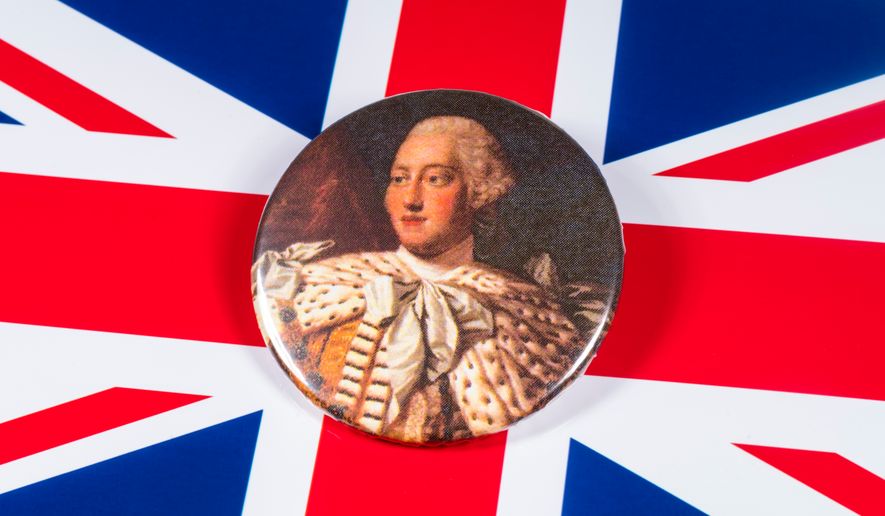In the American origin story, King George III plays the role of the villain.
In the Declaration of Independence, Thomas Jefferson in 28 charges accuses the monarch of establishing “an absolute tyranny” over the 13 North American colonies.
School textbooks uncritically adopted this view, teaching generations of students that George (and Parliament) trampled the colonists’ rights before waging a cruel war against them.
Two centuries later, newspaper articles and editorials continue to refer to George as a “power-mad little petty tyrant” and America’s “last authoritarian ruler.” And in the musical “Hamilton,” the king is depicted as stammering, pompous and comically incompetent.
What if almost none of this were true? It could mean America’s origin story has more than a few holes in it.
In this episode of History As It Happens, biographer Andrew Roberts discusses the ways in which George has been maligned and misunderstood by historians since the end of his mostly successful reign in 1820.
He may have lost America, but George was no despot or tyrant, and his madness, which incapacitated him the last 10 years of his reign, was actually bipolar disorder, not lunacy or porphyria, said Mr. Roberts, the author of “The Last King of America: The Misunderstood Reign of George III,” his latest cradle-to-grave biography of a major historical figure.
“He was a popular monarch. He was the first king to be born and raised in England for a very long time, and he was proud of that. And people tended to like the fact that he was good-natured and charming and quite intelligent. So he was popular in America as well as in Britain,” Mr. Roberts said.
George was a dedicated student of the arts and sciences, from music to architecture to astronomy. As a bibliophile, he amassed a massive library. And he was devoted to following the rule of law and the British Constitution, preferring a conciliatory stance toward his colonial subjects until the Boston Tea Party swayed him to a more punitive policy. All of these traits, said Mr. Roberts, are mostly absent from the history Americans have embraced about their last king.
“It was the right thing for the American Revolution to take place in 1775. You had this fantastic burgeoning economy. You had 2.5 million people. You had as many bookshops in Philadelphia as you had anywhere in the empire apart from London … so it was the right moment for the Founding Fathers to grab their opportunity, but that doesn’t mean George was a tyrant, or a despot, or any of the things that late 18th century tyrants and despots were,” Mr. Roberts said.
“He didn’t prevent the Stamp Act Congress or the First Continental Congress from meeting. He never arrested any editors or closed down newspapers. Apart from Boston, he didn’t station troops in any of the big American cities. These are the things tyrants did in the late 18th century.”
As for Jefferson, Mr. Roberts said only two of the revolutionary’s 28 charges of tyranny against the king in the Declaration of Independence were accurate.
Find out which ones by downloading this episode of History As It Happens.




